Politics
Xi, Putin unite in anti-West rhetoric as China seeks bigger regional role
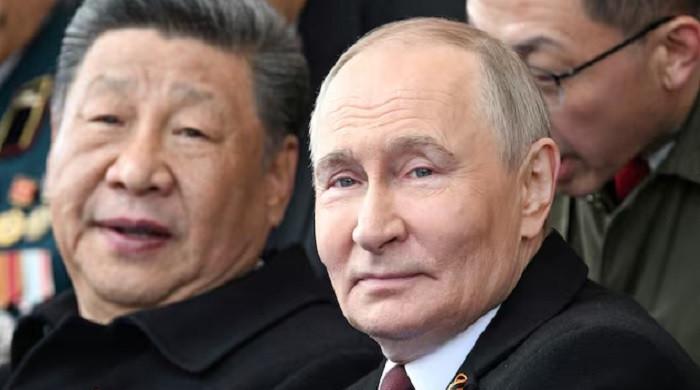
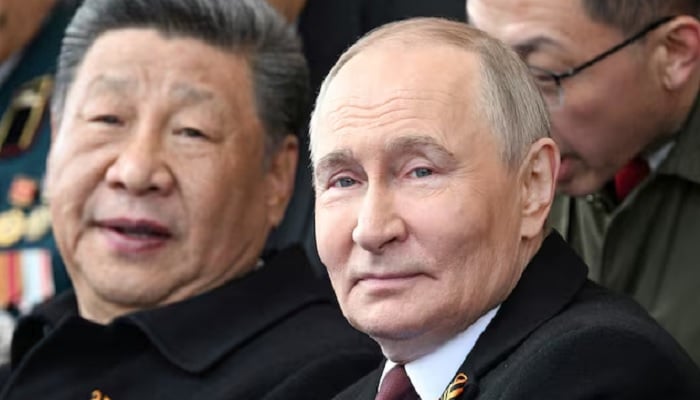
Presidents Xi Jinping and Vladimir Putin took turns Monday to swipe at the West during a gathering of Eurasian leaders aimed at putting Beijing front and centre of regional relations.
The Shanghai Cooperation Organisation (SCO)touts itself as a non-Western style of collaboration between 10 countries in the region and seeks to be an alternative to traditional alliances.
Xi told leaders, including Belarusian President Alexander Lukashenko and India´s Prime Minister Narendra Modi, that the global situation was becoming more “chaotic and intertwined”.
The Chinese leader also slammed “bullying behaviour” from certain countries — a veiled reference to the United States.
“The security and development tasks facing member states have become even more challenging,” he said in his address in the northern port city of Tianjin.
“With the world undergoing turbulence and transformation, we must continue to follow the Shanghai spirit…and better perform the functions of the organisation.”
Putin used his speech to defend Russia´s Ukraine offensive, blaming the West for triggering the three-and-a-half-year conflict that has killed tens of thousands and devastated much of eastern Ukraine.
“This crisis wasn’t triggered by Russia´s attack on Ukraine, but was a result of a coup in Ukraine, which was supported and provoked by the West,” Putin said.
Ukraine’s foreign ministry urged China to work towards peace during Putin’s visit, saying in a statement from Kyiv they “would welcome a more active role” for Beijing to help find peace “based on respect for the UN Charter”.
Putin, meanwhile, praised Turkey’s mediation efforts in the conflict as he met Turkish counterpart Recep Tayyip Erdogan.
And Putin later met his Iranian counterpart Masoud Pezeshkian, the Kremlin said, with the pair expected to discuss Iran’s nuclear programme.
‘Always insightful’
Earlier, leaders from the 10 countries — China, India, Russia, Pakistan, Iran, Kazakhstan, Kyrgyzstan, Tajikistan, Uzbekistan and Belarus — posed for a group photo on a red carpet.
Xi, Putin and Modi were seen chatting, flanked by their translators. Modi and Putin were photographed holding hands and held talks in the afternoon.
Russian state media reported the pair spent nearly an hour talking “face-to-face” in Putin’s armoured presidential car before an official meeting.
“Conversations with him are always insightful,” Modi posted on X alongside a photograph of them travelling in the car.
Before their meeting, Modi praised the “special and privileged strategic partnership” with Moscow and added that India wanted both sides in the Ukraine conflict to “find stable peace”.
‘Mutual trust’
The SCO summit kicked off on Sunday, days before a massive military parade in Beijing to mark 80 years since the end of World War II.
The member states signed a declaration on Monday agreeing to strengthen cooperation in sectors such as security and economy, China’s Xinhua news agency said.
Xinhua added that the leaders also admitted Laos as an observer country, or “dialogue partner” — the summit already has 16 observers.
Xi held a flurry of back-to-back meetings with leaders, including Lukashenko — one of Putin’s staunch allies — and Modi, who is on his first visit to China since 2018.
Modi told Xi that India was committed to taking “forward our ties based on mutual trust, dignity and sensitivity”.
The world’s two most populous nations are intense rivals, competing for influence across South Asia, and they fought a deadly border clash in 2020.
A thaw began last October, when Modi met Xi for the first time in five years at a summit in Russia.
Their rapprochement deepened as US President Donald Trump pressured both Asian economic giants with trade tariffs.
More than 20 leaders are attending the bloc´s largest meeting since it was founded in 2001.
Many of the assembled dignitaries will be in Beijing on Wednesday to watch the military parade, which will also be attended by North Korean leader Kim Jong Un.
A train carrying Kim passed into China early Tuesday, South Korea´s Yonhap news agency reported, citing the North´s state-run radio service.
Politics
New York Times reporter sues Google, xAI, OpenAI over chatbot training


An investigative reporter best known for exposing fraud at Silicon Valley blood-testing startup Theranos sued Elon Musk’s xAI, Anthropic, Google, OpenAI, Meta Platforms and Perplexity on Monday for using copyrighted books without permission to train their artificial intelligence systems.
New York Times reporter and “Bad Blood” author John Carreyrou filed the lawsuit in California federal court with five other writers, accusing the AI companies of pirating their books and feeding them into the large language models (LLMs) that power the companies’ chatbots.
The lawsuit is one of several copyright cases brought by authors and other copyright owners against tech companies over the use of their work in AI training. The case is the first to name xAI as a defendant.
Spokespeople for the defendants did not immediately respond to requests for comment on the lawsuit.
Unlike other pending cases, the writers are not seeking to band together in a larger class action – a type of lawsuit they said favours defendants by allowing them to negotiate a single settlement with many plaintiffs.
“LLM companies should not be able to so easily extinguish thousands upon thousands of high-value claims at bargain-basement rates,” the complaint said.
Anthropic reached the first major settlement in an AI-training copyright dispute in August, agreeing to pay $1.5 billion to a class of authors who said the company pirated millions of books.
The new lawsuit said class members in that case will receive “a tiny fraction (just 2%) of the Copyright Act’s statutory ceiling of $150,000” per infringed work.
Monday’s complaint was filed by attorneys at law firm Freedman Normand Friedland, including Kyle Roche, whom Carreyrou profiled in a 2023 New York Times article.
During a November hearing in the Anthropic class action, US District Judge William Alsup criticised a separate law firm Roche co-founded for gathering authors to opt out of the settlement in search of “a sweeter deal.” Roche declined to comment on Monday.
Carreyrou told the judge at a later hearing that stealing books to build its AI was Anthropic’s “original sin” and that the settlement did not go far enough.
Politics
Australian state set to pass tougher gun laws after Bondi attack
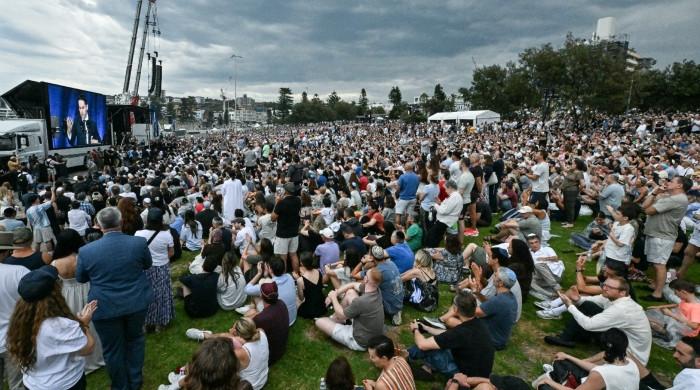

- Bill limits most gun owners to four firearms, 10 for farmers.
- Main opposition Liberal party backs amendments.
- Three-quarters of Australians want tougher gun laws, shows poll.
Australia’s most populous state is set to pass tougher gun laws, ban the display of terrorist symbols and curb protests after the state parliament’s lower house cleared a bill late on Monday in an emergency sitting following the Bondi mass shooting.
The terrorism and other legislation amendment bill won support from the opposition Liberal Party in New South Wales state, and is expected to clear the upper house on Tuesday.
The ruling centre-left Labour government has proposed capping most individual gun licences at four firearms and allowing up to 10 for farmers.
Fifteen people were killed and dozens were injured in the mass shooting at a Jewish Hanukkah celebration at Bondi on December 14, a shock attack that has prompted calls for tougher gun laws and stronger action against antisemitism.
Police said one alleged gunman, Sajid Akram, 50, who was shot dead by officers, owned six firearms. His 24-year-old son Naveed, faces 59 charges, including murder and terrorism.
Although Australia tightened gun laws after a 1996 shooting that killed 35 people, a police firearms registry showed more than 70 people in New South Wales, which includes Sydney, each own over 100 guns. One licence holder has 298 guns.
A Sydney Morning Herald poll on Tuesday found three-quarters of Australians want tougher gun laws. The rural-focused National Party opposed the gun reforms in New South Wales, saying the amendments would disadvantage farmers.
The federal government has also pledged reforms, including tighter gun controls and a gun buyback plan but has resisted calls to set up a royal commission, the most powerful type of government inquiry, into the attack.
Instead, Prime Minister Anthony Albanese, who is facing mounting criticism from opponents who argue his government has not done enough to curb a rise in antisemitism, has announced an independent review of intelligence and law enforcement agencies.
“We need to get to these answers quickly, and we cannot be waiting around for years, which is what a royal commission would take,” Defence Minister Richard Marles told ABC News on Tuesday.
Politics
2025 on target to be UK’s hottest year on record: Met Office
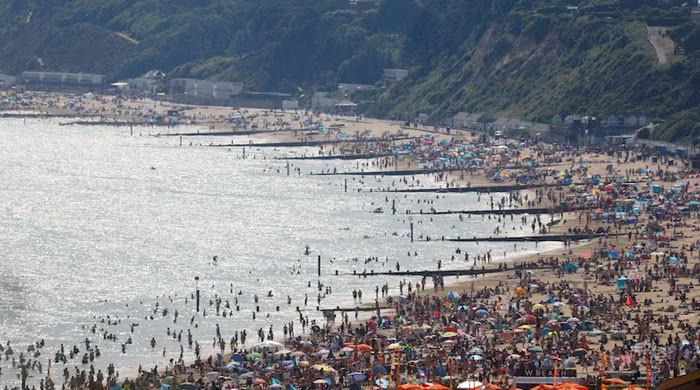
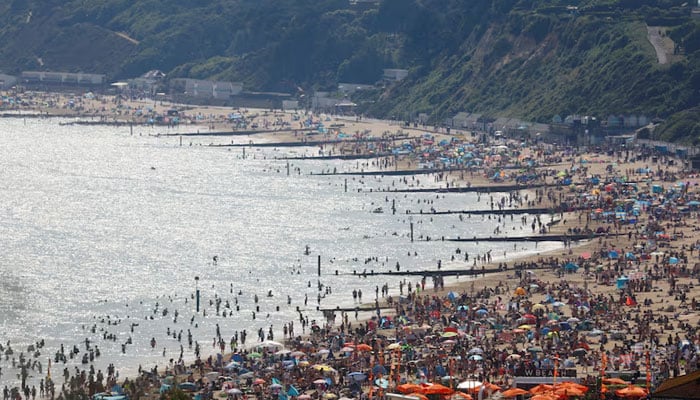
LONDON: This year may have been Britain’s hottest on record, with an average temperature above 10 degrees Celsius, the national weather service said on Tuesday.
Definitive figures for 2025 will be released next January 2, but as of the final week of this year, the average temperature has been 10.05C.
The previous high was 10.03C in 2022, the Met Office said.
If the data is confirmed, it will mean that four of the past five years will be among the hottest ever recorded in the country since records began in 1884.
The hottest 10 years have all occurred during the past two decades.
“In terms of our climate, we are living in extraordinary times,” said senior Met Office scientist Mike Kendon.
“The changes we are seeing are unprecedented in observational records (going) back to the 19th century.”
Last week, the Met Office published data showing that 2025 was the sunniest year since at least 1910.
As of December 15, the UK had seen 1,622 hours of sunshine, beating the record set in 2003.
Spring was the sunniest season in 2025, when high pressure reduced Britain’s cloud cover.
Spring 2025 was the hottest the UK has ever seen, with four heatwaves and rainfall 16 percent lower than the seasonal average.
-

 Business1 week ago
Business1 week agoStudying Abroad Is Costly, But Not Impossible: Experts On Smarter Financial Planning
-

 Fashion5 days ago
Fashion5 days agoIndonesia’s thrift surge fuels waste and textile industry woes
-
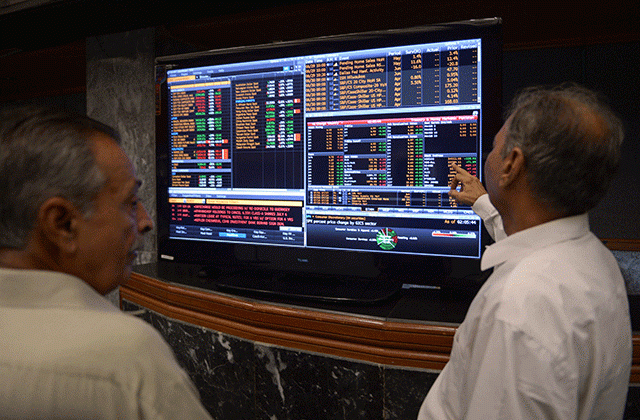
 Business1 week ago
Business1 week agoKSE-100 index gains 876 points amid cut in policy rate | The Express Tribune
-

 Sports1 week ago
Sports1 week agoJets defensive lineman rips NFL officials after ejection vs Jaguars
-

 Business5 days ago
Business5 days agoBP names new boss as current CEO leaves after less than two years
-

 Tech5 days ago
Tech5 days agoT-Mobile Business Internet and Phone Deals
-

 Entertainment1 week ago
Entertainment1 week agoPrince Harry, Meghan Markle’s 2025 Christmas card: A shift in strategy
-

 Sports5 days ago
Sports5 days agoPKF summons meeting after Pakistani player represents India in kabaddi tournament






